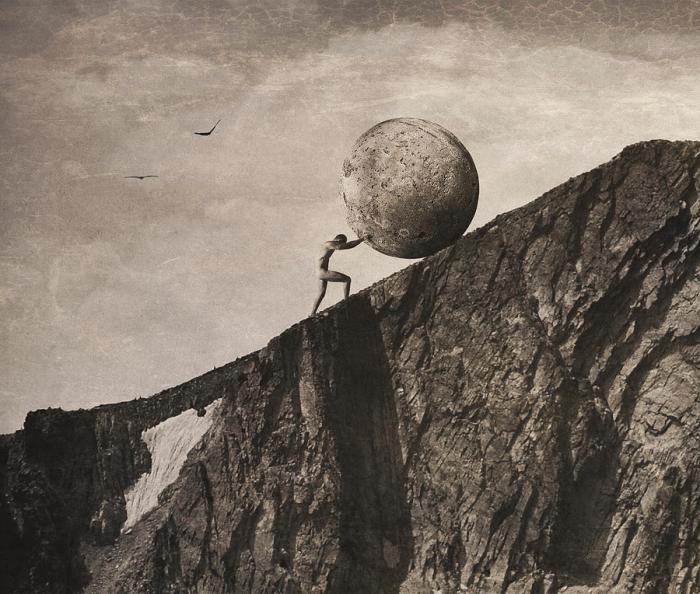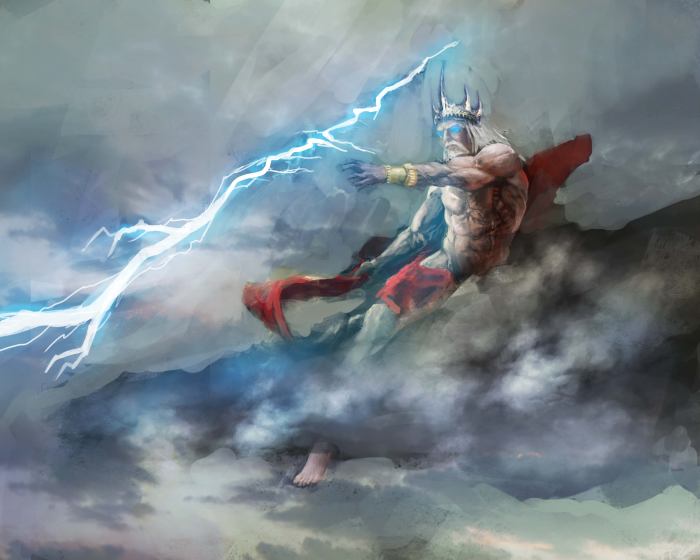Embark on a captivating journey into the realm of mythology with the All Father of Myth Crossword, where we delve into the origins, manifestations, and enduring significance of these enigmatic divine figures.
From Zeus to Odin and Ra, the All-Father archetype has played a pivotal role in shaping human understanding of the divine and our place within the cosmos.
Etymology of ‘All-Father’
The term ‘All-Father’ finds its roots in ancient mythology, particularly in Indo-European cultures. The concept emerged as a linguistic construct, with its origin in the Proto-Indo-European language.
The Proto-Indo-European term for ‘father’ was ‘*ph₂tḗr’, which evolved into ‘pater’ in Latin, ‘πατήρ’ (patēr) in Greek, and ‘पितृ’ (pitṛ) in Sanskrit. The prefix ‘all’ derives from the Proto-Indo-European ‘*h₂leh₃ǵʰos’, meaning ‘complete’ or ‘whole’.
Indo-European Influences, All father of myth crossword
In Indo-European mythology, the All-Father often represented the supreme deity, the creator and ruler of the cosmos. This concept was particularly prevalent in Germanic and Norse mythologies, where Odin, the All-Father, presided over the pantheon of gods.
Linguistic Evolution
Over time, the term ‘All-Father’ underwent linguistic evolution, adapting to different cultural contexts. In Christianity, the concept of God as the ‘Father’ evolved from the Jewish tradition, influenced by the patriarchal structure of ancient Hebrew society.
In modern usage, ‘All-Father’ is often employed as a generic term to refer to the supreme deity in various mythologies, emphasizing the universal and paternalistic nature of this divine figure.
Cross-Cultural Manifestations of the All-Father Figure

The concept of the All-Father, a supreme and omnipotent deity who oversees the cosmos, is a recurring theme in mythologies worldwide. While these figures share certain commonalities, they also exhibit distinct variations in their roles, attributes, and relationships with other deities.
Zeus (Greek Mythology)
Zeus, the king of the Olympian gods, embodies the quintessential All-Father figure. He is the ruler of the heavens, the controller of weather, and the protector of justice and order. Zeus’s attributes include the thunderbolt, the eagle, and the oak tree.
Odin (Norse Mythology)
Odin, the All-Father of Norse mythology, is a complex and enigmatic figure. He is associated with wisdom, war, and death. Odin possesses the power of foresight and can transform himself into different forms. His symbols include the raven, the wolf, and the spear.
Ra (Egyptian Mythology)
Ra, the sun god of ancient Egypt, is often regarded as the All-Father. He is the creator of the world and the bringer of light and life. Ra’s attributes include the sun disk, the scarab beetle, and the falcon.
Attributes and Symbolism of the All-Father: All Father Of Myth Crossword

All-Father figures across various mythologies share common attributes and symbolism that embody their divine power and authority. These attributes include weapons, animals, and other elements that hold significant symbolic meanings.
Weapons
The weapons wielded by All-Father figures often represent their power and dominion. For instance, Zeus’s thunderbolt symbolizes his authority over the heavens, while Odin’s spear, Gungnir, represents his martial prowess and the power to shape destiny.
Animals
Animals associated with All-Father figures often symbolize their connection to the natural world and their ability to control or protect it. Zeus is associated with the eagle, a symbol of strength and majesty, while Odin is associated with the raven, a bird known for its wisdom and foresight.
If you’re stumped on the “all father of myth” crossword clue, why not take a break and learn how to make rum buckets ? This refreshing tropical cocktail is perfect for sipping on a warm afternoon. Once you’ve mastered the art of rum bucket making, you can return to your crossword puzzle and fill in that pesky clue with ease.
Other Elements
Other elements associated with All-Father figures include thrones, crowns, and staffs. These elements represent their regal authority and their role as rulers of the divine realm. For example, Zeus sits upon a golden throne atop Mount Olympus, while Odin’s throne is the high seat of Asgard, the realm of the Norse gods.
The All-Father in Modern Mythology and Culture

The All-Father figure continues to exert a profound influence on contemporary mythology, literature, and popular culture. Its archetypal power resonates with modern audiences, inspiring adaptations and reinterpretations that reflect the evolving nature of our understanding of the divine and human nature.
In modern literature, the All-Father archetype often manifests as a wise and benevolent patriarch, guiding and protecting his people. For example, in J.R.R. Tolkien’s “The Lord of the Rings” trilogy, the character of Gandalf the Grey embodies many of the attributes of the All-Father, serving as a mentor and protector to the Fellowship of the Ring.
The All-Father in Popular Culture
In popular culture, the All-Father figure has been adapted into various forms, including superheroes and fictional characters. Superman, for instance, exhibits many of the traditional attributes of the All-Father, possessing immense power, wisdom, and a commitment to justice. Similarly, the character of Zeus in the Marvel Cinematic Universe embodies the archetypal qualities of the All-Father, wielding divine powers and ruling over the realm of the gods.
The Ongoing Relevance of the All-Father Archetype
The ongoing relevance of the All-Father archetype lies in its ability to embody both the awe-inspiring power of the divine and the relatable qualities of a benevolent protector. It provides a framework for understanding the complexities of human nature, offering a model of wisdom, compassion, and unwavering strength.
General Inquiries
What is the etymology of the term ‘All-Father’?
The term ‘All-Father’ originates from the Proto-Indo-European root ‘*ph₂tḗr’, meaning ‘father’, and has been used in various cultures to refer to the supreme male deity.
How does the All-Father figure manifest across different cultures?
The All-Father figure exhibits both similarities and variations in different mythologies. Common attributes include their role as the creator and ruler of the universe, their association with thunder and lightning, and their relationships with other deities and mortals.
What are some examples of All-Father figures in mythology?
Examples of All-Father figures include Zeus (Greek mythology), Odin (Norse mythology), Ra (Egyptian mythology), and Ahura Mazda (Zoroastrianism).
How has the All-Father archetype influenced modern mythology and culture?
The All-Father archetype continues to be a source of inspiration in contemporary mythology, literature, and popular culture, influencing the portrayal of divine and paternal figures and exploring themes of power, authority, and the search for meaning.